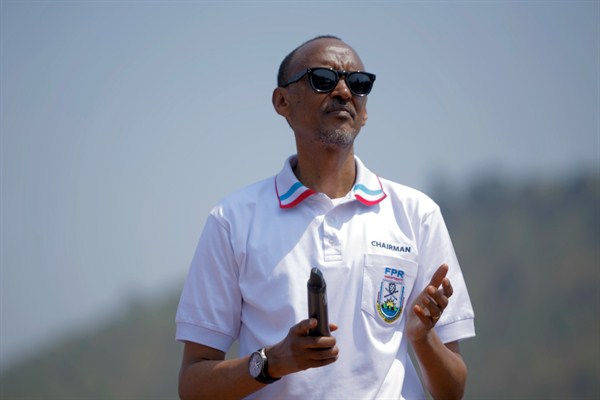In May 2016, five months after voters approved changes to Rwanda’s constitution that would allow him to spend up to 17 more years in office, President Paul Kagame sat down for a telling conversation with two of his most high-profile foreign admirers: former British Prime Minister Tony Blair and American philanthropist Howard Buffett.
The venue, the 2016 World Economic Forum for Africa, held in Rwanda’s tidy capital, Kigali, was the sort of spectacle that the 59-year-old Kagame, who is almost certain to win re-election next week, relishes. Over three days of discussions and panels, African and global business elites frequently harped on the host nation’s rise from the site of one of the 20th century’s worst mass atrocities to a country admired across the continent for its security, effective governance and steady economic growth.
Yet at the end of a high-level talk on development partnerships, Blair threw out a curveball, asking Buffett what he thought of Kagame’s controversial move to cling to power. The Nebraska-bred son of billionaire investor Warren Buffett, whose foundation has pledged up to $500 million toward modernizing Rwandan agriculture, responded bluntly.

